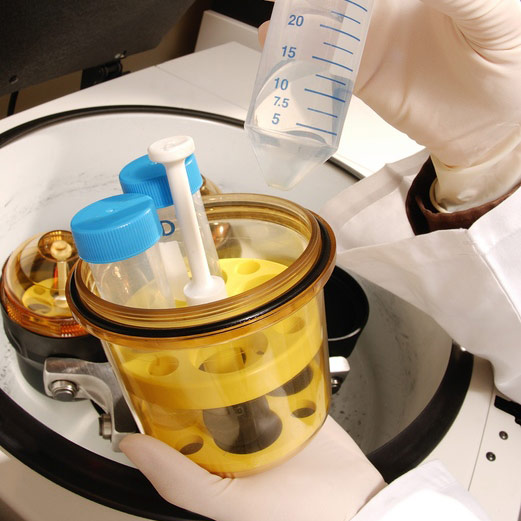
TUESDAY, June 3, 2014 (HealthDay News) — Researchers working with mice have identified a drug they believe holds promise as a preventive treatment for Alzheimer’s disease.
In the study, the compound cut levels of amyloid beta — a protein associated with this degenerative brain disease — by about half, the researchers said.
Years before Alzheimer’s develops, amyloid beta starts to build up and clump in the brain. Scientists believe that helping the brain remove this protein in late middle age might ward off the disease.
Preventing Alzheimer’s may be more feasible than stopping it once it develops and damages the brain, the NYU Langone Medical Center researchers said.
“The key is to prevent the disease process from going that far,” said the study’s leader, Dr. Martin Sadowski, associate professor of neurology, psychiatry, and biochemistry and molecular pharmacology.
A treatment based on this compound, known as 2-PMAP, might thwart Alzheimer’s, the researchers said. They found that the compound enters the brain easily and specifically targets amyloid proteins, reducing the risk for certain side effects. Since it is non-toxic for mice, they suspect it is likely safe enough to be taken regularly by people over a long period of time.
“What we want in an Alzheimer’s preventive is a drug that modestly lowers amyloid beta and is also safe for long-term use,” Sadowski said in an NYU news release.
“Statin drugs that lower cholesterol appear to have those properties and have made a big impact in preventing coronary artery disease. That’s essentially what many of us envision for the future of Alzheimer’s medicine,” he added.
However, results achieved in animal studies aren’t necessarily duplicated in humans.
In conducting the study, published online June 3 in Annals of Neurology, the researchers screened a collection of compounds and found that 2-PMAP dramatically reduced the production of amyloid precursor protein — the “mother protein” of amyloid beta. In test cells, this lowered amyloid beta levels by 50 percent or more.
The mice involved in the research were engineered to have the same genetic mutations as people with a hereditary form of Alzheimer’s disease. After receiving a five-day treatment with 2-PMAP, the levels of amyloid precursor protein and amyloid beta in brains of the mice dropped dramatically.
Treatment over four months appeared to prevent the mental deficits usually seen in these mice as they get older, according to the news release.
The researchers said they are now working on ways to make 2-PMAP more effective.
Alzheimer’s is currently the most common form of dementia, affecting more than 5 million Americans. Prevalence of the disease is expected to triple by 2050 if effective preventive treatments are not developed.
More information
The U.S. National Institute on Aging provides more information on Alzheimer’s disease.
Copyright © 2024 HealthDay. All rights reserved.

